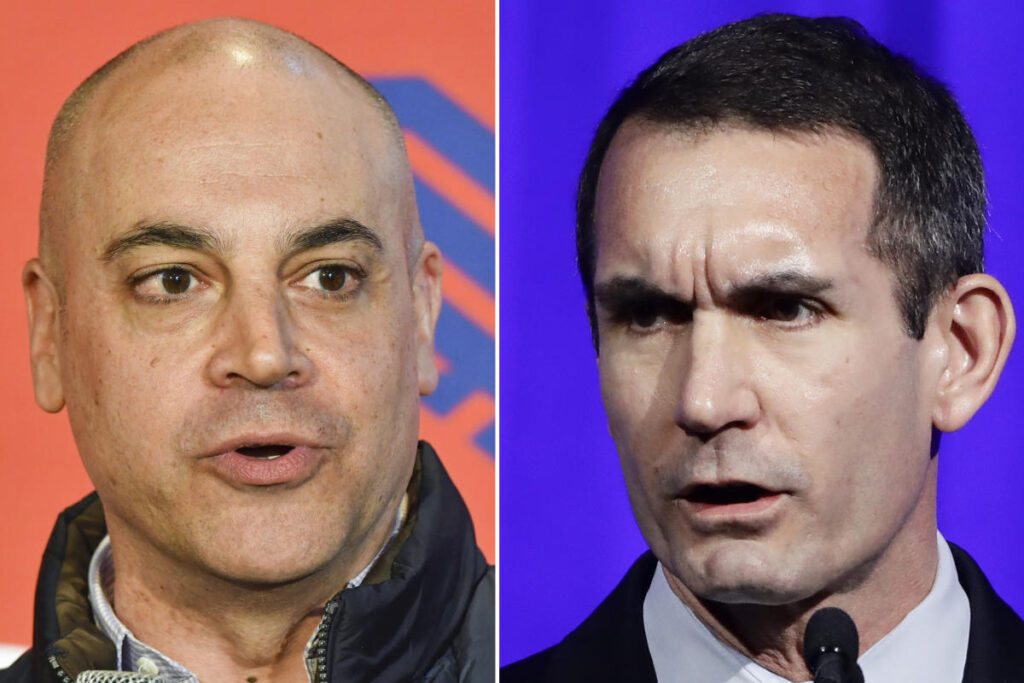As Pennsylvania heads into a pivotal election season, voters will be considering several key statewide offices, including the positions of Attorney General, Auditor General, and Treasurer. Republican incumbents Stacy Garrity and Tim DeFoor are vying to retain their seats, while the Attorney General position is open following the ascension of the current AG, Josh Shapiro, to the governorship. Each of these offices plays a significant role in monitoring governmental operations and managing the state’s financial resources, with annual salaries approximately $198,000. The candidates represent varying political ideologies and experiences, reflecting the broader debates currently shaping state governance.
In the race for Attorney General, Republican Dave Sunday, currently the District Attorney for York County, faces off against Democrat Eugene DePasquale, a former Auditor General and State Representative. Sunday’s campaign emphasizes his extensive prosecutorial experience in a Republican stronghold, framing himself as tough on crime and supportive of traditional law enforcement values. Conversely, DePasquale is leveraging his background in governance and fiscal oversight, highlighting his previous work addressing critical issues such as untested rape kits and child abuse hotline responsiveness. The candidates diverge significantly on social issues, particularly regarding abortion rights, aligning with larger national narratives within their respective parties.
Both candidates have articulated their stances on capital punishment, with DePasquale expressing reservations about its morality and efficacy, while Sunday maintains a supportive position, contingent on the severity of the crimes. Their contrasting perspectives reflect broader tensions within the Republican Party in Pennsylvania, particularly surrounding the implementation of abortion laws and the state’s capital punishment policy, issues that have resonated with voters in recent years. This race not only carries implications for legal policies in Pennsylvania but also indicates how the evolving political landscape may influence more stringent party alignment on these contentious topics.
The Auditor General race features incumbent Tim DeFoor, whose focus has been on enhancing financial literacy and developing preventive measures against potential misconduct within government agencies. His opponent, State Rep. Malcolm Kenyatta, an influential figure in the House, critically positions DeFoor’s decisions, such as his controversial audit of the motor-voter registration system, asserting these decisions cater to baseless conspiracies surrounding electoral integrity. Kenyatta’s campaign emphasizes transparency and accountability, particularly regarding how government resources are allocated and the importance of maintaining educational audit processes that DeFoor halted, claiming these initiatives lacked value.
DeFoor’s administration has faced criticism from various quarters, with opponents arguing that his audits serve political ends rather than genuine oversight. Kenyatta contends that a more thorough examination of school facilities and labor law enforcement is necessary, positioning himself as a champion for educational equity and fiscal responsibility. The contrasting approaches of the two candidates illustrate a broader discussion of oversight effectiveness in government and its implications for public trust.
In the race for Treasurer, Garrity is defending her record against challenger Erin McClelland. Garrity, a retired military veteran and a critic of political polarization in financial management, credits her office with significant achievements, including initiatives to manage unclaimed property and enhance savings programs for vulnerable populations. However, McClelland, who brings a background in mental health advocacy, contends that Garrity has allowed partisan politics to mar the integrity of the role. She advocates for a restoration of neutrality and focus on protecting taxpayers, which she argues is paramount for effective governance.
Their contest encompasses broader themes about the role of elected officials in addressing both local and national issues. While Garrity’s incumbency has benefited from specific endorsements and a well-funded campaign, McClelland seeks to portray herself as a candidate driven by principled nonpartisanship. The upcoming elections in Pennsylvania showcase the way these candidates’ positions resonate with constituents amid ongoing discussions about governance, accountability, and the social policies that continue to ignite fierce debate within the state. As these races unfold, they represent not merely a fight for office but also a reflection of the democratic values and priorities at stake for Pennsylvania’s future.

